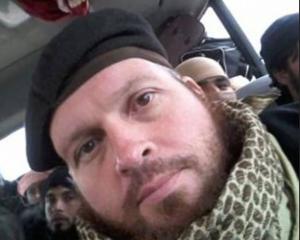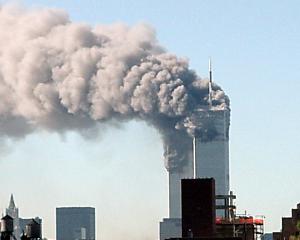Obama's top national security officials were due to brief Congress on Syria later on Thursday (local time), and Britain said armed action would be legal, but any intervention looked set to be delayed until UN investigators report back after leaving Syria on Saturday.
Syrian opposition sources said Assad's forces had removed several Scud missiles and dozens of launchers from a base north of Damascus, possibly to protect them from a Western attack, and Russia was reported to be moving ships into the region.
But expectations of imminent turmoil eased as the diplomatic process was seen playing out into next week, and the White House emphasized that any action would be "very discrete and limited," and in no way comparable to the Iraq war.
The US and its allies have "no smoking gun" proving Assad personally ordered the attack on a rebel-held Damascus neighbourhood in which hundreds of people were killed, US national security officials said.
In secret intelligence assessments and a still-unreleased report summarizing US intelligence on the alleged gas attack on Aug. 21, US agencies expressed high confidence that Syrian government forces carried out the attack, and that Assad's government therefore bears responsibility, US national security officials said.
US Secretary of State John Kerry and Secretary of Defense Chuck Hagel were among senior US officials expected to brief congressional leaders later on Thursday. Some lawmakers complained they had not been properly consulted.
While UN chemical weapons inspectors spent a third day combing the rebel-held area where the attack took place, elsewhere in Damascus traffic moved normally, with some extra army presence but little indication of any high alert.
A parliamentary debate in London revealed deep misgivings stemming from the 2003 invasion of Iraq. After pressure from lawmakers, the British government - a key player in any proposed air assault on Syria - has promised parliament a decisive vote once the UN weapons inspectors report their findings.
The United Nations said its team of inspectors would leave Syria on Saturday and report to Secretary-General Ban Ki-moon.
British Defence Secretary Philip Hammond told Israel's Channel Two TV there would then be a "genuine attempt" to pass a Security Council resolution before another vote in the British parliament, a process he said could take some days.
"MONSTROUS CRIME"
France and Germany urged the world body to pass its report on to the decision-making Security Council as soon as possible "so that it can fulfil its responsibility with regards to this monstrous crime".
The United States, Britain and France say they can act with or without a UN Security Council resolution, which would likely be vetoed by Russia, a close ally to Assad. However, some countries are more cautious: Italy said it would not join any military operation without Security Council authorisation.
Western diplomats say they are seeking a vote in the 15-member Council to isolate Moscow and demonstrate that other countries are behind air strikes.
A report from Moscow that Russia is sending two warships to the eastern Mediterranean underscored the complications surrounding even a limited military strike, although Russia has said it will not be drawn into military conflict.
The five veto-wielding permanent UN Security Council members will meet again on Thursday afternoon, UN diplomats said. The five - the United States, Russia, China, Britain and France - held an inconclusive meeting on Wednesday to discuss a draft Security Council resolution that would authorize "all necessary force" in response to the alleged gas attack.
British Prime Minister David Cameron told parliament it would be "unthinkable" to proceed if there was overwhelming opposition in the Security Council. But he published legal advice given to the government under which military action would be lawful for humanitarian reasons even if a Security Council resolution were blocked by a veto.
The International Committee of the Red Cross joined a chorus of international voices urging caution.
"Further escalation will likely trigger more displacement and add to humanitarian needs, which are already immense," said Magne Barth, head of the ICRC delegation in Syria.
Increasing expectations that any action will be delayed ended a three-day sell off on world share markets on Thursday, although investors were still on edge over fears of future turmoil in the Middle East.
"SHOT ACROSS THE BOW"
Obama sought to win over a war-weary American public on Wednesday evening by saying intervention in Syria, where more than 100,000 people have been killed in two and a half years of civil war, would serve US national security interests.
"If we are saying in a clear and decisive but very limited way, we send a shot across the bow saying, 'Stop doing this,' this can have a positive impact on our national security over the long term," he told "PBS Newshour" in a televised interview.
While saying he had not yet made a decision on military action, Obama left little doubt the choice was not whether but when to punish Syria for the gas attacks.
"We have concluded that the Syrian government in fact carried these out," he said on Wednesday evening.
Syria denies blame for the gas attacks and says they were perpetrated by rebels. Washington and its allies say the denial is not credible.
According to the US national security officials, evidence that forces loyal to Assad were responsible goes beyond the circumstantial to include electronic intercepts and some tentative scientific samples from the site.
"This was not a rogue operation," one US official said.
G20 TO MEET IN RUSSIA
Western leaders are expected in Russia next Thursday for a meeting of the Group of 20 big economies, an event that could influence the timing of any strikes. The hosts have made clear their view that Western leaders are using human rights as a pretext to impose their will on other sovereign states.
"At this stage it is necessary to take all needed actions to avert possible negative developments ... or some kind of military action regarding Syria," Russian Deputy Foreign Minister Gennady Gatilov told state-run Rossiya-24 television. "And that is what we ...(are) focusing our efforts on now."
A spokesman for the main Syrian opposition umbrella group, the Syrian National Coalition, said the opposition was confident Western leaders were prepared to act.
SNC leader Ahmed Jarba met French President Francois Hollande. An SNC spokesman said they discussed a two-wave intervention to first target installations used to launch chemical weapons and then hit other government bases in Syria.
"We are very happy. France and its partners are quite decided to punish the Syrian regime," SNC envoy Monzer Makhous told Reuters after the talks. "Then there will be military aid to help the opposition to change the balance of power."
Hollande urged Jarba to create a credible military force, highlighting Western concern that the mainstream opposition is unable to control al Qaeda-linked militias on the ground in Syria. Syrian officials say the West is playing into the hands of its al Qaeda enemies.
In Damascus, residents and opposition forces said Assad's forces appeared to have evacuated most personnel from army and security command headquarters in the centre in preparation for Western military action.
People unable to decide whether to leave for neighbouring Lebanon said the border was already jammed.
"We're hearing people are spending hours - like 12 or 14 hours - waiting in line at the border," said Nabil, who was considering leaving town for Beirut with his wife and young daughter, "just until the strike is over."
Diplomats based in the Middle East told Reuters the removal of some of Assad's Scud missiles and launchers from the foothills of the Qalamoun mountains, one of Syria's most heavily militarized districts, appeared to be part of a precautionary but limited redeployment of armaments in areas of central Syria still held by Assad's forces.
Despite opinion polls showing most Americans oppose deeper involvement in the Syrian conflict, Obama has been under pressure to enforce a "red line" against chemical weapons use, which he declared just over a year ago.
Arguing for measured intervention after long resisting deeper involvement in Syria, Obama insisted that while Assad's government must be punished, he intended to avoid repeating US errors from the Iraq war.
"I have no interest in any open-ended conflict in Syria, but we do have to make sure that when countries break international norms on weapons like chemical weapons that could threaten us, that they are held accountable," Obama said.
The likeliest option, US officials say, would be to launch cruise missiles from US ships in the Mediterranean in a campaign that would last days.











